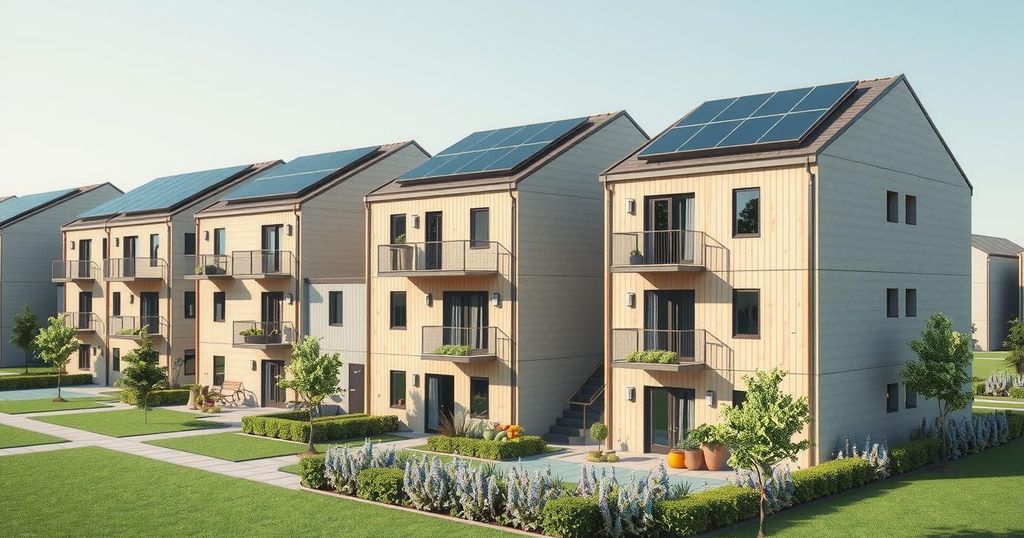A report by BuyLetLive details the significant impact of inflation on Nigeria’s housing market in 2024, highlighting affordability issues, demand shifts, and emerging innovations. Recommendations include adopting cost-saving technologies and prioritizing affordable housing solutions to navigate these challenges going into 2025.
Inflation has significantly altered Nigeria’s housing market in 2024, according to a report by BuyLetLive. The study indicates that inflation has created affordability challenges and reshaped demand dynamics within the sector. To alleviate the adverse effects of inflation on housing in 2025, the report recommends prioritizing affordable housing solutions, encouraging local production of building materials, and utilizing cost-saving technologies. This proactive approach is crucial for fostering a more inclusive and resilient housing market going forward.
While inflation presents considerable challenges, it also encourages innovation in Nigeria’s housing market. Developers are increasingly turning to cost-saving methods such as modular construction and prefabricated materials. These approaches aid in reducing both construction times and overall costs while ensuring quality. Furthermore, the adoption of renewable energy solutions, like solar panels, is becoming more prevalent as a strategy to lower utility expenses for both tenants and homeowners. Emerging trends also include energy-efficient designs and smart home technology, which attract buyers focused on long-term savings.
Despite the significance of the real estate sector to Nigeria’s economy, inflation poses threats to its activity. Rising costs have dampened housing demand, leading to project delays in construction. The report emphasizes that inflation has become a pivotal force influencing Nigeria’s economic and social landscape. In 2024, continuous inflationary patterns underscored the intricate interplay between fiscal and monetary policies, exchange rates, and international trade dynamics, with the naira depreciating alarmingly against the dollar due to various economic conditions.
From January to December 2024, Nigeria’s inflation rate soared from 29.9% to 34.8%, driven by currency devaluation, increased energy prices, and disruptions in global supply chains. This inflationary environment has led to increased costs for essential goods, including food and building materials, thereby straining household budgets and altering spending habits amidst a housing deficit estimated at 28 million. The effects of inflation have been prominently felt in the housing sector, affecting material costs and consumer behavior.
The report indicates that intensified inflation has severely impacted affordability for families within the housing market. Many households are experiencing rising mortgage rates and property prices that have outstripped income growth, prompting them to downsize, postpone homeownership, or face higher rental costs. Notably, inflation in 2024 surged prices for critical building materials and construction services, with some materials witnessing price increases exceeding 30%. For instance, the cost of a 50kg bag of cement rose from approximately ₦3,800 in 2022 to around ₦7,000 in 2024. Labor costs have similarly escalated due to a heightened cost of living, resulting in either absorbed costs by developers or increased rents and property prices for consumers.
In conclusion, the report by BuyLetLive illustrates the profound impact of inflation on Nigeria’s housing market in 2024. Key challenges have arisen, including heightened affordability concerns and changes in demand dynamics. However, the situation also opens avenues for innovation through cost-saving technologies and sustainable practices. A proactive approach is necessary to mitigate these challenges and ensure a more robust housing sector in the years ahead.
Original Source: punchng.com






